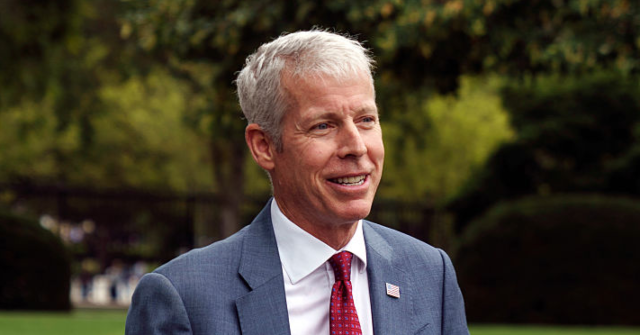Energy Secretary Chris Wright on Friday directed the Federal Energy Regulatory Commission (FERC) to initiate a rulemaking to accelerate American manufacturing and ensure that the United States continues to lead in artificial intelligence.
Wright wrote to commissioners of the FERC:
To usher in a new era of American prosperity, we must ensure all Americans and domestic industries have access to affordable, reliable, and secure electricity. To do this, large loads, including AI data centers, served by public utilities must be able to connect to the transmission system in a timely, orderly, and non-discriminatory manner. This is an urgent issue that requires prompt attention.
The Energy secretary wrote that, while FERC has historically not exerted jurisdiction over load interconnections to the interstate transmission system, he believes that interconnection of large loads falls “squarely within” FERC’s jurisdiction.
He explained why this move is so important for American manufacturing and AI development:
This Administration is committed to revitalizing domestic manufacturing and driving American AI innovation, both of which will require unprecedented and extraordinary quantities of electricity and substantial investment in the Nation’s interstate transmission system. We must do so efficiently, fairly, and expeditiously. Thus, pursuant to my authority under section 403 of the Department of Energy Organization Act, I attach for the Commission’s consideration the enclosed advance notice of proposed rulemaking.
Yahoo News wrote:
This type of rule change has been eagerly anticipated by tech and power executives in the aftermath of the FERC’s rejection of a request by Talen Energy Corp. to directly supply an Amazon.com Inc. data center from a Pennsylvania nuclear plant.
But it also risks pushback from states grappling with soaring power demand from data centers, new factories, and electric vehicles — and the resulting higher utility bills.
Wright’s proposed rule would give data centers an expedited review if they include additional power plants or agree to limit power usage if the regional grid system faces increased strain, such as during a heatwave.
Data center companies cheered the news.
“Then there’d be a lot more certainty when you start a project that you’d know when it would be energized,” Raul Martynek, CEO of DataBank, which operates about 75 data centers across the country, said.
He added, “On behalf of the American people, and given the urgency of this issue, I look forward to your consideration and final action (no later than April 30, 2026).”
Read the full article here


